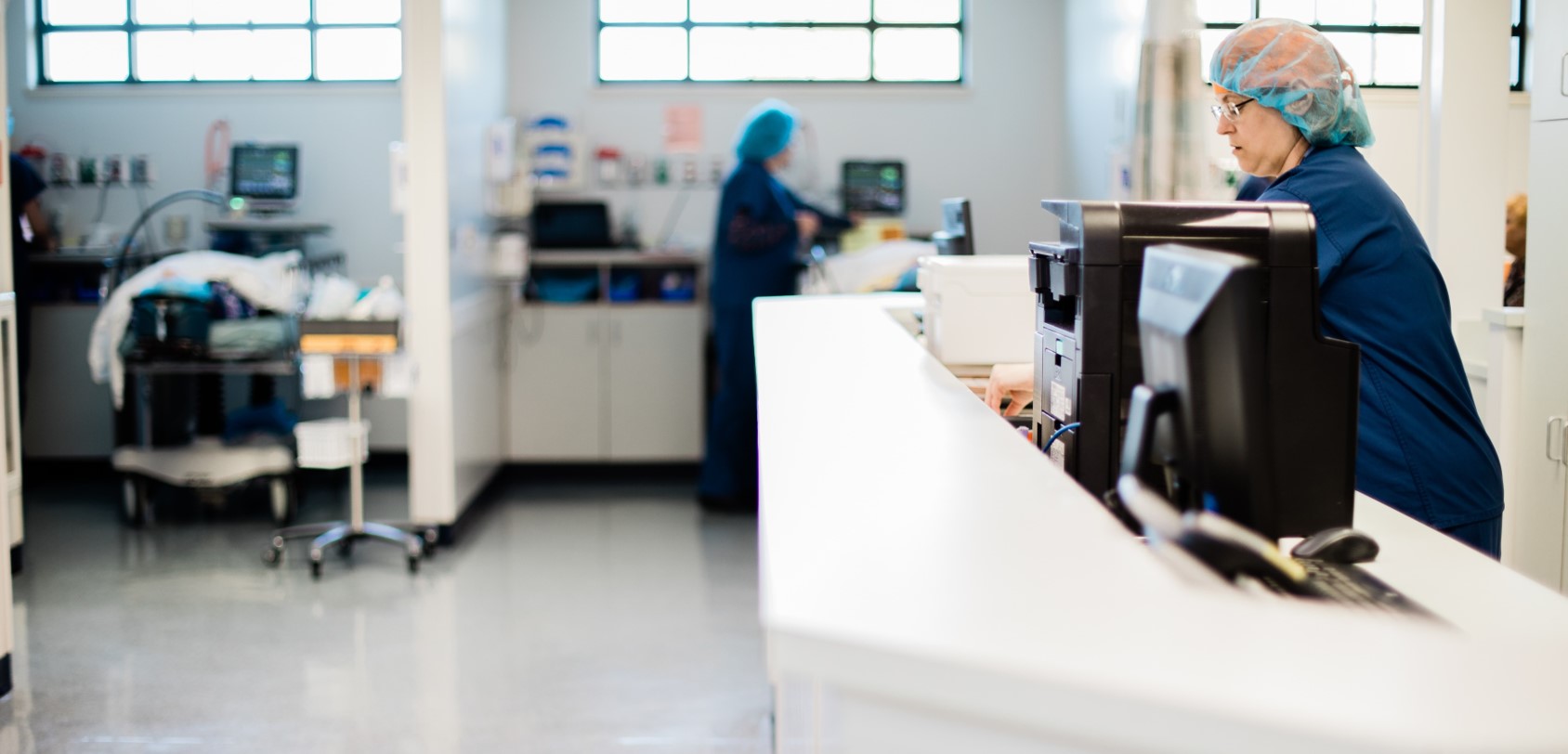For Your Visit
What to Expect: Our Process
When the time comes for you or a loved one to have eye surgery, you can trust the Asheville Eye Surgery Center.
The surgeons, nurses and technicians at the AESC are all united with one clear purpose: to provide you with the highest quality eye care available anywhere in an environment where your safety and comfort are our highest priority.
We Aim to Make Your Experience as Pleasant as Possible
1. Before Your Surgery
Prior to your day of surgery, you will be called by a registered nurse. This pre-operative call will review previous anesthetic experiences, medical conditions, allergies, and medications or herbal products you may use. The nurse will also go over pre-operative instructions. Our team must speak to you or a Power of Attorney directly, prior to your surgery date.
Federal law requires that we ask if you have executed an Advance Directive. This is a document written in advance which states your choices about medical treatment or names someone to make choices about medical treatment for
2. Upon Arrival
On the day of your surgery, our entire staff will be ready for your arrival and make every effort to help you feel less anxious throughout your time in our center. Please arrive at your designated time so that you have time for paperwork and to meet our staff. We do appreciate a courtesy call if you are running late: _. Remember to have an escort accompany you on the day of surgery for the drive home and to ensure comfort for the first 24 hours. You are encouraged to leave your valuables at home, but we need you to bring your I.D., insurance cards and any co-pays or deductibles.
It is important that you not eat or drink as per your pre-operative instructions. If you take medications, take your normal morning medication as usual with a small amount of water, as per instructions given to you by your surgeon or anesthesia provider.
What to Bring
- Health insurance card and a photo I.D. (driver’s license)
- Any required payment
- Signed Patient’s Rights & Responsibilities Form
- Healthcare Power of Attorney papers if applicable
- Inhalers, diabetic medications or insulin
- A friend or family member to drive you home
Do NOT Bring
- Personal items or valuables
3. Information Verification
You will be asked many times during your visit to verify your name and birth date. You may also be asked to give details about your surgery. These questions are being asked for your safety.
4. Pre-Operative Area
Shortly after your arrival, you will be brought back into the pre-op area. Here the nurse will interview you and provide some education on your procedure. Be sure to report any recent illness or unusual symptoms you may be experiencing. In the pre-op area, the anesthetist will discuss the types of anesthesia and determine the best method for you. Again, it is important to share any information about your history with the anesthetist so that any potential risks may be identified. Then, just before you are taken back to the operating room, your surgeon will visit with you to answer questions, review the procedure, and mark the site of interest.
5. Operating Room
The anesthetist and your operating room (OR) nurse will accompany you through the automatic doors into our OR. You will notice that all of the staff in this room wear masks, gowns, head covers, and gloves. The OR is a sterile environment where the equipment and instruments have been carefully prepared for your surgical procedure. The lights will be bright and the room will be chilly but our warmed blankets will help you stay comfortable.
6. Post-Operative Area
You will be closely monitored by the nursing staff in the post-op area as you begin to recover from anesthesia. If you have any discomfort, it will be managed by the nursing staff per instructions from your surgeon. The length of your stay in the post-op area is typically brief; the nursing staff will ensure that you are comfortable, able to drink fluids and sit up at the bedside.
7. Discharge
When you are ready to leave, the post-op nurse will review instructions for
8. Next Day
On the day following your surgery, you will typically see your surgeon at his/her office. If your surgery does not require a follow-up visit, you will receive a phone call in two to three days from our nursing staff to check on your status since discharge.

